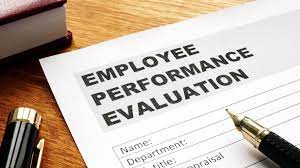This is one of the most important questions that many small business owners have. What steps should I take to get my accounting and bookkeeping in order? To make things more difficult, accounting has shifted from pen and paper to program records. That’s why in this article we shall help you with accounting programs for a small business, free software, and much more so sit tight for a knowledge ride.
Accounting Programs
Accounting programs record and process accounting transactions and serve as an accounting information system from which decision-makers or company accountants can monitor business processes and generate financial reports.
Their essential feature is an interactive financial dashboard with a general ledger for handling double-entry bookkeeping. Common features of this class of programs include:
- Means of tracking company inventory and purchase orders
- Sales tracking
- Automated invoicing
- Receipt capture via document or image processing
- Timekeeping
- Analytics for budgeting and revenue tracking
- Financial reporting
- Accounts payable/accounts receivable functions.
Accounting Program Overview
Accounting software benefits small business owners by allowing them to handle accounts receivable and payable, have a clear knowledge of their profitability, and prepare for tax season. A tiny firm, in the area of accounting software, is one that can use out-of-the-box software without major adaptations. As a company grows, its accounting requirements get more sophisticated, necessitating the use of a specialized enterprise resource planning system.
Accounting software for small businesses comes in a variety of flavors. Each has its own set of features and price tags. In general, the type of industry and the number of employees are two aspects that might aid a small business owner in selecting appropriate accounting software. A freelancer, for example, would not require the same accounting software functionality as a restaurant owner.
How Do Accounting Programs Work?
When a company’s checking and credit card accounts are linked to its accounting software, all transactions will show in a batch, ready to be filed according to the company’s chart of accounts. Once a transaction’s right classification has been determined, it will start populating the company’s financial statements. A financial report can be generated in a matter of seconds, allowing business owners to quickly and easily analyze financial data such as profit and loss, revenue and expenses, bank and loan balances, and tax obligations. The ability to quickly access this financial data is a powerful tool for any business owner.
In addition, several types of accounting software support integration with external programs. If a business owner employs a point-of-sale (POS) system to track sales, the POS system may be able to sync with the company’s accounting software to keep track of individual sales, tax obligations, and more. Integration between a time-tracking app and accounting software makes it easy to charge customers for their time spent on a project.
How Much Do Accounting Programs for Small Businesses Cost?
Pricing for accounting software aimed at small businesses can be anywhere from free to $150 per month. The starting price point is in the basic plan range, which is somewhere between $0 and $40 per month. Income and expenditures can be tracked, bills can be sent, and financial reports can be generated with even the most rudimentary plan in place. Most software is designed to grow with a company, so it’s simple to upgrade as your company expands. The most advanced packages provide firms with the ability to manage inventory, generate individualized financial reports, process payroll, and select from an expanded set of invoicing alternatives.
What Do You Need From Your Accounting Programs?
In order to keep tabs on the cash coming into and going out of your company, you’ll require accounting software that can manage both accounts payable and receivable. There are applications out there that don’t cover both accounts payable and receivable. In addition, your banking and credit card accounts should be synced with your accounting software so that transactions can be downloaded instantly. There may be a requirement for project management resources in the event that your company provides a service. Accounting software with inventory management capabilities may be useful if your company deals in physical goods. Finally, it’s a good idea to look for software solutions that provide additional benefits by integrating with other programs you use in your organization.
Accounting Programs for Small Business
Before choosing our top five accounting programs for small businesses, we investigated and compared nineteen accounting programs for small business vendors. We evaluated cost, simplicity of use, features, integrations, and scalability when evaluating firms.
- QuickBooks Online
- Xero
- FreshBooks
- QuickBooks Self-Employed
- Wave
#1. Best Overall Quickbooks Online
Of those evaluated, is the best overall accounting program for small businesses. Not only do the vast majority of small business accounting experts utilize QuickBooks Online, but there are also a plethora of online training materials and forums where you may receive help if you need it. All accounting capabilities may be accessed from a single dashboard, making bookkeeping easier and more efficient.
Small businesses and their bookkeeping and also, tax specialists have long relied on Intuit’s QuickBooks Online accounting software. In addition, the program is hosted in the cloud and can be accessed via a web browser or a mobile app.
Simple Start ($25 per month), Essentials ($40 per month), Plus ($70 per month), and Premium ($150 per month) are the four membership tiers available after the 30-day free trial. For the first few months, most accountants offer a large discount. And some accountants can also offer wholesale rates to small enterprises.
#2. Best for Micro-Business Own
Xero is the best in our review for micro-businesses that are looking for very simple accounting software. This software has a clean interface and also fully integrates with a third-party payroll service. Still, businesses can collect payment online from customers through Xero’s integration with Stripe and GoCardless.
Xero starts in New Zealand in 2006 and today has over two million members throughout the world. Still, in New Zealand, Australia, and the United Kingdom, this accounting software is very popular. Xero has approximately 3,000 workers and is quickly expanding in the United States.
Xero has three monthly membership packages as well as a payroll add-on: Early on, at $11 per month, it grew to $32 per month, and by the end of the year, it was at $62 per month. Gusto provides a full-service payroll solution for an extra $39 per month plus $6 per employee. The company offers a 30-day free trial as well as a two-month 50% off promotion.
This limited plan may be appropriate for a micro-business that does a modest number of high-ticket transactions per month, such as a consultant or small service provider. The sole difference is that the Established plan includes more capabilities such as multi-currency, spending management, and project costing.
#3. Best for Service-Bas
Invoicing is the most important accounting requirement for most service-based firms. On the other hand, unlike other accounting software, FreshBooks allows users more invoicing customization. Its major purpose is to send, receive, print, and pay invoices, but it may also do basic bookkeeping for a company. Service-based firms can use this accounting software to send proposals and invoices, seek deposits, collect client retainers, track project time, and receive payments.
Founded in 2003 in Toronto, FreshBooks started as just an invoicing software. Over time, more features have been added and FreshBooks now has over 500 employees. There are four different plans, and businesses can get a 10% discount if they choose to pay yearly, rather than monthly. Additionally, FreshBooks offers a 60% discount per month for six months. In addition, the four plans are Lite at $6 per month, Plus at $10 per month, Premium at $20 per month, and Select, which is a custom service with custom pricing.
The main difference between the four plans is the number of different clients that are to be paid per month. More so, in the Lite plan, up to five clients can be billed per month. Up to 50 clients can be billed per month. In the Premium plan, unlimited clients can be billed per month. The Select plan also does not have a limitation on the number of clients that can be billed per month but adds unique features.
#4. Best for Part-Time Freelancers Quickbooks Self-Employed
For part-time freelancers and independent contractors who primarily want to manage their income and expenses for their tax returns, thus, we recommend QuickBooks Self-Employed accounting software. This program is for small business owners who file a Schedule C on their personal tax returns.
Without employing software like this to track company activities, freelancers would have to sift through all of their bank and also, credit card statements at the end of the year to tally up their income and expenses, which can be time-consuming. All business transactions will be automatically totaled by QuickBooks Self-Employed.
QuickBooks Self-Employed is an Intuit solution with a mobile app and a cloud-based internet interface. In addition, this program was intended to assist freelancers in staying organized throughout tax season each year. In fact, Tracking mileage, classifying spending, collecting receipts, issuing invoices, and calculating and filing taxes using TurboTax are all features of QuickBooks Self-Employed.
The Self-Employed plan is $15 per month, the Self-Employed Tax Bundle costs $25 per month, and the Self-Employed Live Tax Bundle costs $35 per month. Furthermore, for the first three months, there is a 50% discount. A TurboTax subscription for income tax filing is included in both tax bundles. The Self-Employed Live Tax Bundle also includes access to a CPA throughout the year and during tax season to answer inquiries. Before filing, the CPA will check your tax return in TurboTax one last time.
#5. Best Free Software Wave
Wave is an ideal accounting software platform for a service-based small business that sends simple invoices and doesn’t need to track inventory or run payroll. Thus, for many freelancers or service-based businesses, Wave’s free features will cover all of their accounting needs, and it is the best free software in our review. Also, at year-end, accountants can pull the necessary reports from Wave to prepare a business tax return.
Do You Need Online Bookkeeping Software Instead of Accounting Software?
When referring to software for use by small firms, the terms “online bookkeeping software” and “online accounting software” are frequently identical. (On the other hand, there is a distinction to be made between accountants and bookkeepers.) The finest online accounting tools for small businesses provide bookkeeping features that enable users to record debit and credit transactions. These programs also contain accounting features that enable users to run reports and monitor the financial performance of their company. Look for a solution that does more than just bookkeeping; accounting software should include more detail and allow you to generate invoices and thorough reports. Look for a solution that does more than just bookkeeping.
Should Your Accounting Software Also Act as an Invoice Generator?
It is dependent on the kind of your company. If you send a significant number of invoices to clients and customers, or if you anticipate sending a significant number of invoices, it is highly recommended that you look for an all-inclusive accounting tool that includes facilities for creating invoices. The use of accounting software that can produce invoices is something that freelancers should really consider.
What Does an Online Accounting Service Do?
Accounting services available online can handle a wide variety of responsibilities for owners of busy businesses. Some concentrate on bookkeeping tasks, such as entering and classifying transactions, reconciling accounts, and producing financial statements and reports that you can present to your certified public accountant when it is time to file taxes. While some businesses offer services in the areas of payroll and tax preparation. Some accounting professionals, such as chief financial officers, certified public accountants, and virtual controllers, offer high-level services to their clients, including financial planning and analysis, internal audits, and more.
Should Small Businesses Look For Certain Accounting Software Attributes?
The owners of small businesses should search for accounting software that is easy to install, easy to use, easily interacts with third-party applications, and provides a wide variety of features and capabilities, such as the ability to manage invoices and inventories. The greatest accounting software makes it simple for you and your accountant to work together on financial matters.
Online Accounting Programs
An online accounting degree can open the door to a satisfying and lucrative career, likely to bring a high return on investment (ROI) a few years down the line. Moreover, most online bachelor’s accounting programs offer flexibility to working professionals. Read on for three more key benefits of earning an online bachelor’s accounting degree.
#1. Clayton State University
Clayton State University offers an online Bachelor of Business Administration (BBA) in Accounting. Hence, students will develop accounting and business software skills and an understanding of ethical issues in the accounting profession.
#2. Georgia Southwestern State University
Georgia Southwestern University offers a fully online Bachelor of Business Administration in Accounting. Consequently, the 120-credit program includes 60 credits of general education and prerequisite courses and 60 credits of major/elective requirements, including a capstone course in strategic management.
#3. University of the Cumberlands
The University of the Cumberlands (UC) offers an online Bachelor of Science in Accounting through the Hutton School of Business. Also, the program focuses on providing students with an understanding of the fundamentals of accounting, auditing, and economics.
#4. University of London
This London School of Economics and Political Science online certificate course helps you gain holistic business skills from anywhere in the world, in just 10 weeks. Hence, master business strategy, finance, and leadership guided by expert LSE faculty.
#5. UCL
Pursue your MBA online at UCL, one of the world’s top 10 universities, and join a community of disruptive thinkers. Thus, designed for experienced business professionals with 5+ years of work experience, to learn how to make data-driven business decisions and navigate a fast-paced global business landscape.
FAQ
What are the 4 types of accounting?
Discovering the 4 Types of Accounting
- Corporate Accounting. …
- Public Accounting. …
- Government Accounting. …
- Forensic Accounting. …
- Learn More at Ohio Universit
Do I need an accountant if I use QuickBooks?
You should talk to an accountant who can help you get off to a good start and also, advise on issues such as accounting software and VAT.
Principles of Accounting are;
- Revenue Recognition Principle,
- Historical Cost Principle,
- Matching Principle,
- Full Disclosure Principle, and.
- Objectivity Principle.






